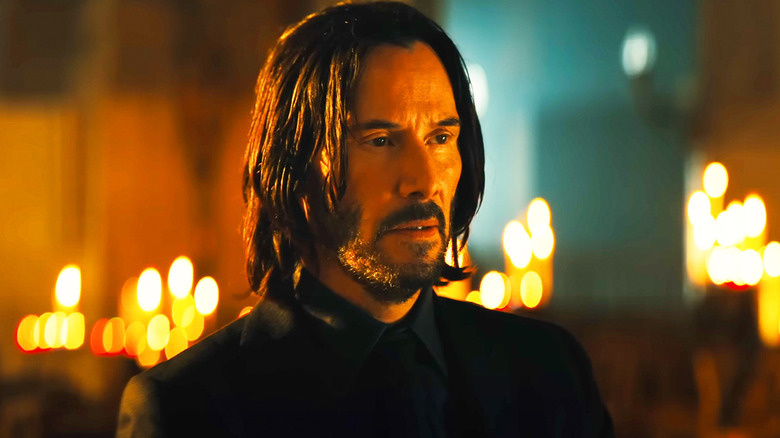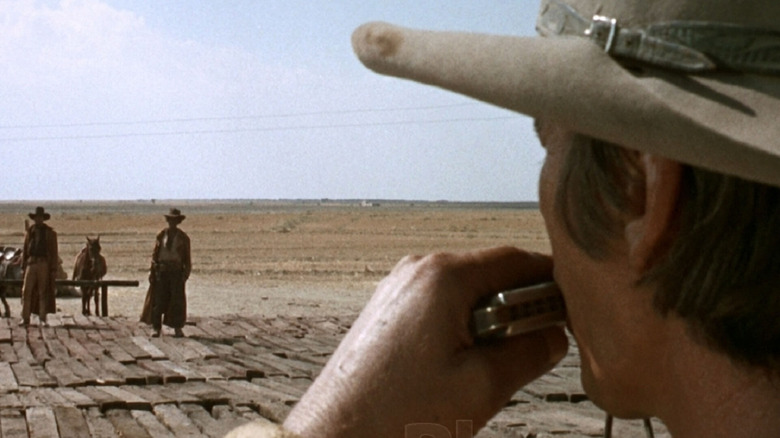The Classic Western That Completely Changed John Wick's Style And Tone
The "John Wick" franchise is inspired by everything from samurai movies to Hong Kong action flicks, with a little bit of Greek mythology thrown in for good measure. However, Keanu Reeves' titular assassin is also reminiscent of the gunslingers in Sergio Leone's classic spaghetti Westerns. Director Chad Stahelski has cited those movies as an influence on "John Wick," with Clint Eastwood's The Man with No Name character in the "Dollars" trilogy being an obvious inspiration. That said, there is another beloved Leone Western that informed Stahelski and Reeves' action saga, and you're probably familiar with it.
Wick is a lone wolf action hero who does most of his talking with guns, swords, fists, and library books. The character doesn't have a lot of dialogue in the movies, but he doesn't need it to convey his thoughts and intention. This creative decision was inspired by Leone's "Once Upon a Time in the West" — a true epic that is rightfully regarded as one of the best Westerns of all time. The film uses dialogue sparingly, which helps heighten the tension during its most memorable sequences. Dialogue is mainly used when it matters, similar to the "John Wick" movies.
As documented by Vulture, Stahelski and Reeves watched Leone's film and decided to remove lots of dialogue from the original "John Wick" script. One of these moments occurs when Reeves' character responds to a priest by saying "uh-huh" during a shootout in a church, which is simple and to the point. The original idea, however, involved the characters waxing philosophical about mortality for a minute, but Leone's school of filmmaking prompted Stahelski and Reeves to take the "less is more" approach — a lesson they've carried with them since them.
John Wick: Chapter 4 has a strong Sergio Leone influence
Calling John Wick a man of few words is the understatement of the century. "John Wick: Chapter 4" sees him speak around 380 words during its three-hour runtime, most of which are short responses to other characters talking to him. The original script had him speak more often, but Keanu Reeves had half of the dialogue removed in order to make his character seem more stoic and mythic.
Given that Sergio Leone also didn't feel the need to stuff his own three-hour epics with lots of chatting, we can safely assume that "Once Upon a Time in the West" informed the "John Wick" franchise's fourth installment. The decision also paid off, as "John Wick: Chapter 4" is one of the best movies in the entire saga, celebrated for its top-notch action choreography, in-depth world-building, and emotional storytelling.
"Once Upon a Time in the West" is also about the death of the Old West, while "John Wick: Chapter 4" represents the end of an era in its own right, as the film concludes with a shot of the titular hero's headstone. It would have been a perfect conclusion to an excellent series, but a fifth film is on the way, so we can look forward to seeing the man of few words kick even more butt down the line.

